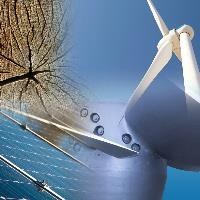(STRASBOURG) – Euro-MPs struck a deal with EU ministers Wednesday on the inclusion of REPowerEU measures in national recovery plans to support independence from Russian fossil fuels and the green transition.
The provisional agreement provides that EU countries applying to receive additional funds through an amended recovery and resilience plan will be required, after the entry into force of this proposal, to include measures to save energy, produce clean energy and diversify energy supplies, as foreseen in the EU’s REPowerEU plan.
Negotiators agreed that the new rules will cover measures retroactively from 1 February 2022, with some limited exceptions. MEPs made sure that these measures are designed to support investments to tackle energy poverty for vulnerable households, SMEs and micro-enterprises.
Regarding funding, Parliament negotiators ensured that from the additional 20 billion euro in grants proposed by the Commission, 8 billion will come from an earlier auctioning of national emission allowances under the EU Emissions Trading System (ETS), while 12 billion will be taken from the Innovation Fund. In addition, no revenue raised through the ETS can be used for investments in fossil fuel.
To adequately support the decarbonisation of industrial sectors, MEPs obtained a commitment from the Council and Commission to replenish the Innovation Fund to above its current size, with 2 billion euro already agreed and the remainder to be part of the negotiations on the ongoing ETS reform.
This additional 20 billion euro in grants will be distributed to member states, taking into account their energy dependency rate and the share of fossil fuels in gross inland energy consumption.
MEPs also ensured that there will be flexibility regarding the use of unspent EU funds, particularly those from the 2014-2020 budget cycle. Furthermore, EU countries will be able to use up to 7.5% of their unspent allocations from the cohesion policy under the 2021-2027 programming period to attain their REPowerEU objectives. No agriculture funds will be transferred to the RRF.
Parliament’s negotiators successfully negotiated an increased pre-financing of 20% of the funds to help member states to quickly implement reforms and investments.
MEPs convinced EU countries to allocate at least 30% of their spending under REPowerEU to multi-country measures, addressing existing bottlenecks in energy transmission, distribution and storage as well as increasing cross-border flows, even if carried out by one EU country. The Commission can grant a derogation from this rule under specific circumstances.
The “do no significant harm” principle should apply to the REPowerEU chapters, with exemptions granted to measures that safeguard the EU’s immediate energy security concerns, minimise the potential environmental harm and do not jeopardise EU climate targets. Such measures should be in operation by 31 December 2026.
EP negotiators also strengthened the existing provisions concerning the input from regional authorities, NGOs and social partners in defining REPowerEU measures. Finally, they introduced new transparency rules concerning final recipients receiving the highest amount of funding. These rules will apply to the whole of the recovery and resilience plans.
Further information, European Parliament


